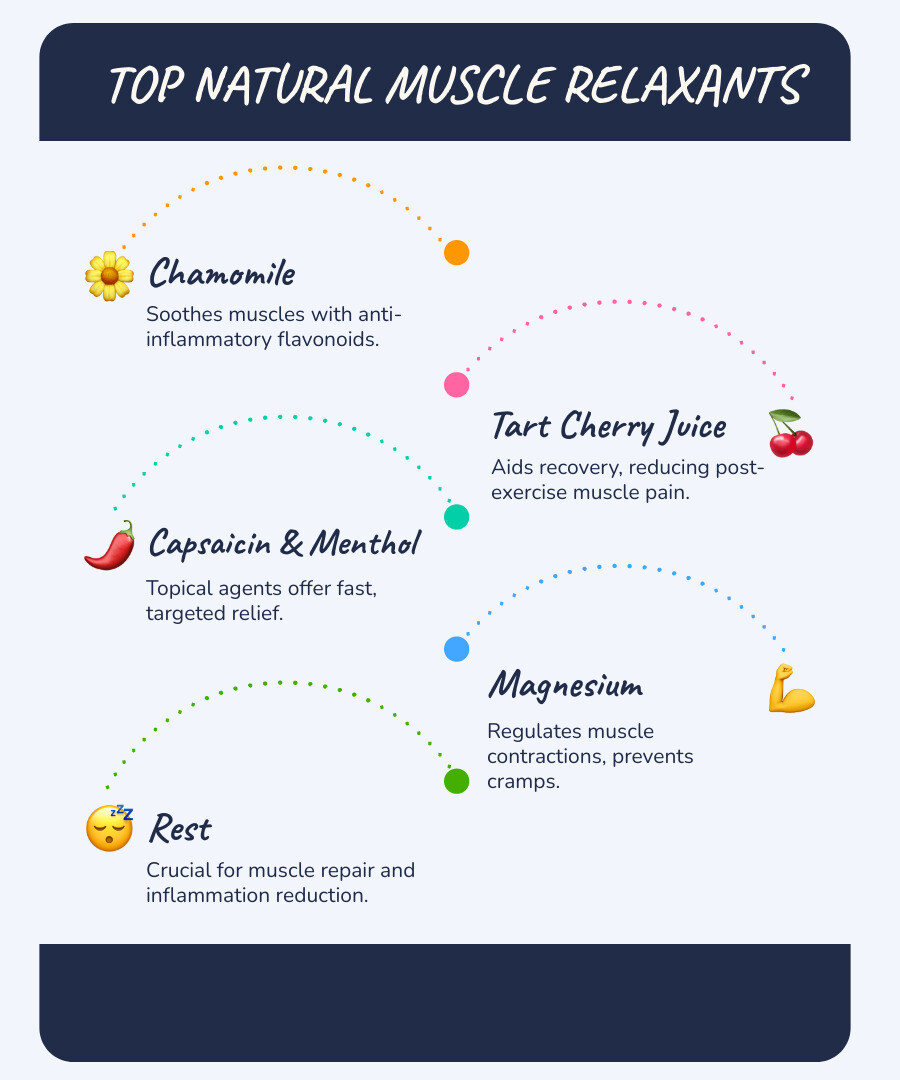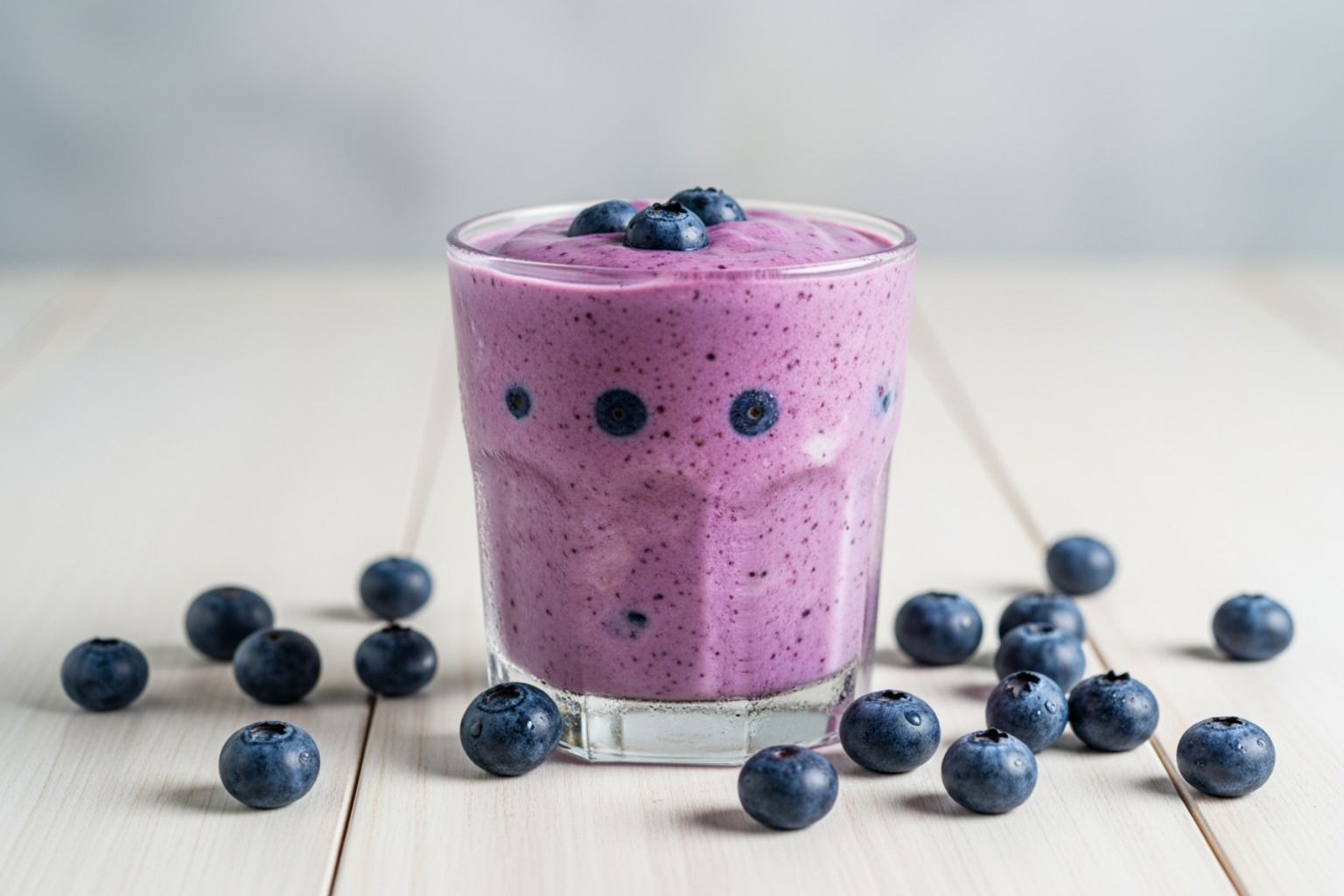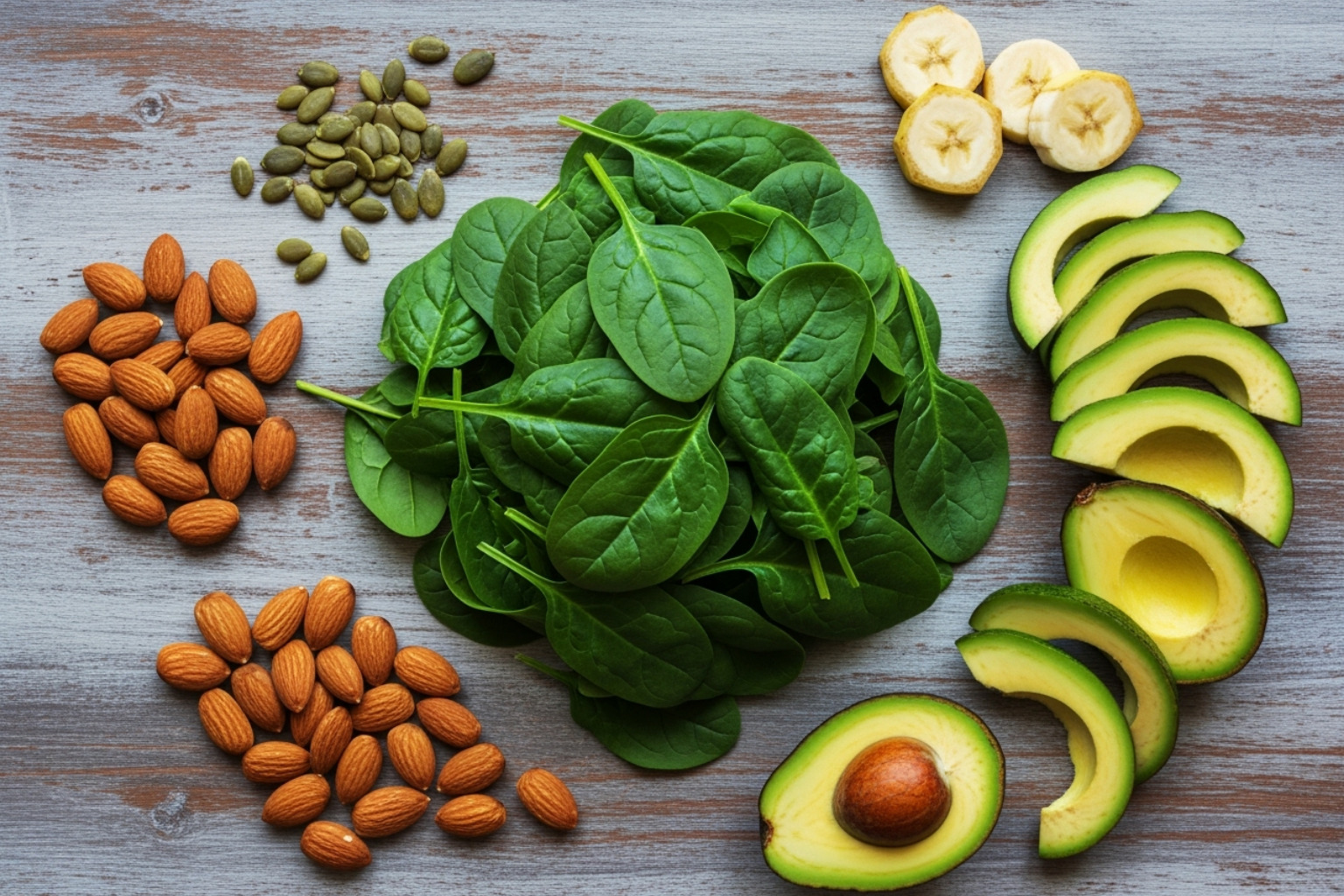Why Natural Muscle Relaxants Are Your Body's Best Friend
A natural muscle relaxant can be your safest path to relief when muscle tension strikes. Whether from post-workout soreness, stress-induced knots, or chronic spasms, natural remedies offer effective relief without the drowsiness and dependency risks of prescription medications.
Top Natural Muscle Relaxants for Quick Relief:
- Chamomile - Contains 36 anti-inflammatory flavonoids
- Tart Cherry Juice - Reduces post-exercise muscle pain
- Capsaicin & Menthol - Fast-acting topical relief
- Magnesium - Essential for proper muscle function
- Vitamin D - Prevents deficiency-related muscle pain
- Blueberries - Combat oxidative stress and inflammation
- Rest - Your body's most powerful healing tool
Muscle spasms are incredibly common, affecting areas like your abdomen, arms, hands, and back. Many cases stem from heavy exercise, while others result from acute neck and back pain, pregnancy, or chronic conditions like multiple sclerosis.
The beauty of natural muscle relaxants lies in their gentle effectiveness. Unlike pharmaceuticals that can cause drowsiness or dependency, natural remedies work with your body's healing processes. They reduce inflammation, improve circulation, and provide targeted relief while supporting your overall health.
I'm Tony Enrico, and through my work developing Neuropasil's advanced pain relief formulas, I've seen how combining natural ingredients like menthol, aloe, and panthenol provides fast-acting relief from muscle tension and nerve discomfort. My expertise in natural muscle relaxant formulations has helped countless people find gentle yet effective alternatives to harsh pharmaceuticals.

Why Choose Natural Alternatives Over Pharmaceuticals?
When a stubborn muscle spasm makes your day miserable, you might want the strongest, fastest fix. But before reaching for prescription muscle relaxants, consider why a natural muscle relaxant could be your smartest move. Pharmaceutical options can be like using a sledgehammer, often coming with unwanted baggage.
Fewer side effects are a major benefit of natural options. While prescription drugs can cause significant drowsiness, dizziness, and dependency, natural remedies are typically milder. "Natural" isn't side-effect free—too much magnesium can upset your stomach—but these issues are usually manageable and less severe.
Many natural options offer non-drowsy formulas that let you function. You can get relief from muscle pain without nodding off during an important meeting or feeling like your brain is mush.
But perhaps the most beautiful thing about natural remedies is their holistic health benefits. Sipping chamomile tea for muscle tension also calms your nervous system and may improve sleep. Antioxidant-rich blueberries fight muscle inflammation while supporting your immune system and brain health.
Sometimes muscle problems are actually your body's way of waving a red flag about nutritional deficiencies. Magnesium deficiency is a classic example – it can trigger muscle cramps and spasms that no amount of stretching will fix. By choosing natural sources of these vital nutrients, you're not just putting a band-aid on the problem; you're actually addressing what might be causing it in the first place.
Research continues to evolve in this area, particularly around comparing natural supplements directly with pharmaceutical options. A systematic review examining efficacy and safety of muscle relaxants for low back pain highlights the ongoing conversation about finding the most effective and safest treatments for muscle-related pain.
| Feature | Natural Muscle Relaxants | Pharmaceutical Muscle Relaxants |
|---|---|---|
| Side Effects | Generally milder (e.g., GI upset, mild drowsiness), less risk of dependency. | Can be significant (e.g., severe drowsiness, dizziness, dependency). |
| Mechanism | Work with body's natural processes (anti-inflammatory, antioxidant, nutrient support). | Target specific neurotransmitters or pathways in the central nervous system. |
| Accessibility | Often available over-the-counter in various forms (teas, supplements, topical creams). | Require a prescription from a healthcare provider. |
| Holistic Benefits | Often provide broader health benefits (e.g., stress reduction, antioxidant support). | Generally focused on muscle relaxation, with fewer systemic benefits. |
| Dependency Risk | Low to none. | Can be moderate to high for some medications. |
The bottom line is that natural muscle relaxants work with your body's healing systems. They are often more accessible, gentler, and support overall health while targeting muscle concerns, offering a balance of effectiveness and peace of mind.
7 Powerful Natural Muscle Relaxants for Quick Relief
When muscle tension strikes, you don't have to reach for harsh pharmaceuticals. Nature has provided us with incredible remedies that work gently yet effectively to ease pain and promote healing. Let's explore seven natural muscle relaxant options that can provide the relief you're seeking.
1. Chamomile: A Gentle Natural Muscle Relaxer
A cup of chamomile tea before bed isn't just for mental relaxation; it's a powerful natural muscle relaxant. This ancient herb has soothed aches for centuries, and science now confirms its benefits.
Chamomile's secret is its anti-inflammatory power, containing 36 flavonoids that reduce inflammation and calm muscle spasms. It also has a "spasmolytic action," meaning it directly helps muscles relax. This is why it's traditionally used for cramps and is gentle enough for children yet effective for adults with muscle tension.
Getting chamomile into your system is wonderfully simple. A warm cup of chamomile tea is the classic approach – just steep dried chamomile flowers in hot water for 5-10 minutes. For more targeted relief, you can dilute chamomile essential oil with a carrier oil like coconut or jojoba and massage it directly onto tense muscles.
Want to dive deeper into the science? Check out this scientific research on chamomile's properties to see just how impressive this humble flower really is.

2. Tart Cherry Juice: The Athlete's Ally
Professional athletes often use tart cherry juice after intense training, making it a go-to natural muscle relaxant for anyone who pushes their body to the limit.
The magic lies in anthocyanins, the potent compounds that give the juice its color. They reduce inflammation and oxidative stress from intense exercise, minimizing post-workout pain.
Research backs up what athletes have been finding firsthand. Studies show that drinking tart cherry juice can significantly reduce post-exercise muscle pain and speed up recovery time. A comprehensive 2018 review confirmed that cherries could reduce both pain and muscle damage resulting from intense physical activity.
The beauty of tart cherry juice is its simplicity. Incorporate it into your post-workout routine as a refreshing drink. Some athletes drink it before and after exercise for maximum benefit. It is quite tart, so you might want to dilute it or mix it into a smoothie.
Curious about the research? Explore these studies on cherry juice for muscle pain to see the impressive evidence supporting this delicious remedy.
3. Blueberries: The Antioxidant Powerhouse
Blueberries are more than a delicious snack; they're a legitimate natural muscle relaxant that tackles the root causes of muscle discomfort.
As antioxidant superstars, blueberries neutralize the oxidative stress and inflammation from exercise that cause pain and slow recovery.
While they may not eliminate the sensation of soreness, studies show blueberries reduce inflammatory markers, helping muscles heal and recover more efficiently behind the scenes.
The easiest way to harness blueberry power is through smoothies. A blueberry smoothie before exercise helps prepare your muscles, while a post-workout smoothie supports recovery. Plus, it's a lot more enjoyable than other remedies.
For the scientific details on how these tiny powerhouses support muscle health, check out a recent study on blueberry consumption and muscle recovery.

4. Capsaicin & Menthol: The Topical Power Duo
For immediate, targeted relief, nothing beats the dynamic duo of capsaicin and menthol. These two natural muscle relaxant ingredients work together, with one providing instant cooling while the other offers longer-term pain management.
Capsaicin, from cayenne peppers, is a sophisticated topical pain-fighter. It works by interacting with nerve receptors, first causing a warming sensation, then depleting substance P. This process desensitizes nerve receptors, reducing pain signals and relaxing muscles.
Menthol, from peppermint oil, is capsaicin's perfect partner. It provides immediate relief through its cooling sensation, activating cold receptors that help block pain signals from reaching your brain, acting as a natural numbing agent.
This combination is particularly effective for people dealing with fibromyalgia, rheumatoid arthritis, and localized muscle spasms. The immediate cooling relief of menthol gives you comfort while capsaicin works on the underlying pain mechanisms.
For targeted relief from nerve-related muscle pain, a high-quality topical cream containing both ingredients can be incredibly effective. A balanced formulation is key for maximum benefit without skin irritation.
If you're dealing with specific types of nerve and muscle pain, you might find helpful information about sciatica relief cream and similar targeted approaches.
5. Vitamin D: The Sunshine Vitamin for Muscle Health
Persistent muscle pain could be a sign your body needs more sunshine. Vitamin D deficiency is a common but often overlooked cause of chronic muscle pain and spasms.
When vitamin D levels are low, muscles can't function properly. Studies link deficiency to slower muscle relaxation, increased fatigue, and symptoms of myopathy (muscle disease), making physical effort feel harder and more painful.
The good news? Correcting a vitamin D deficiency can dramatically improve muscle function and strength. Research shows it can even reduce delayed onset muscle soreness (DOMS) after exercise by supporting mitochondrial function, which is essential for muscle energy and performance.
Getting enough vitamin D is easier than you might think. Your body naturally produces it with sunlight exposure—just 10-15 minutes several times a week can help. You can also find it in foods like eggs, fatty fish (salmon, mackerel, tuna), and fortified milk.
If diet and sun aren't enough, vitamin D supplements are widely available and generally safe in various forms, including liquids, tablets, and capsules.
For detailed dosing information and safety guidelines, refer to the dosing information for Vitamin D from Mayo Clinic.
6. Magnesium: The Essential Mineral for Your Muscles
Magnesium is often called "muscle's best friend." This nutrient is involved in over 300 bodily reactions, and for good reason, it often tops the list of natural muscle relaxant options.
Think of it this way: calcium tells your muscles to contract, while magnesium helps them relax. Without enough magnesium, muscles struggle to let go, leading to cramps, spasms, and tension.
The early warning signs of deficiency often appear as muscle problems like regular cramps (especially at night) or persistent pain. This is common in athletes, people under stress, and those with diets low in magnesium-rich foods.
Nature provides plenty of delicious ways to boost your magnesium intake. Leafy greens like spinach are powerhouses, while nuts (almonds, cashews), seeds, legumes, and even dark chocolate can help you meet your daily needs. Bananas and brown rice are also excellent sources.
For those who struggle to get enough through diet alone, magnesium supplements are a popular and generally safe option. Adults typically need 310-420 mg daily. Start with a lower dose and increase it gradually, as magnesium can sometimes cause gastrointestinal upset.
To learn more about this critical mineral and its role in muscle health, consult the magnesium fact sheet from the NIH.

7. Rest: The Ultimate Natural Muscle Relaxant
Sometimes the simplest medicine is the most powerful. When it comes to natural muscle relaxant options, nothing beats rest. It's your body's free, built-in repair system, yet it's often the most underused remedy.
When you rest, your body repairs the microscopic tears in muscle fibers created during physical stress. It uses protein and minerals to rebuild them stronger, but this repair process only happens effectively at rest.
Quality sleep is when the real healing occurs. During deep sleep, your body releases growth hormone, increases protein synthesis, and reduces inflammation to rebuild your muscles. Skipping sleep halts this vital process.
Rest isn't just about preventing overuse injuries, though that's certainly important. Pushing tired muscles without adequate recovery time sets you up for more pain. Rest allows your muscles to rebuild stronger, making them more resilient.
The beautiful thing about rest is that it comes in many forms. Deep sleep is the gold standard, but active rest – like gentle stretching or easy walking – can also promote healing. Even simply avoiding overworking the affected muscle gives it space to recover. Adding heat therapy or ice packs can provide additional comfort.
Muscle recovery takes time. Listen to your body, prioritize rest, and give your muscles the downtime they need. Profound healing happens when we allow our bodies to do their job.
How to Safely Choose the Best Natural Muscle Relaxant
Finding the right natural muscle relaxant depends on your unique situation. With a thoughtful approach, you can safely find effective relief.
Start with your healthcare provider. This is crucial, especially if you're taking medications, have chronic conditions, or are pregnant or breastfeeding. Your doctor can help you avoid potential interactions and choose the safest path.
Understanding the cause of your muscle pain is key. For post-workout soreness, tart cherry juice, magnesium, or a cooling menthol cream might be perfect. For chronic conditions like fibromyalgia, you'll need a more strategic, long-term approach.
Consider the form that fits your lifestyle. Chamomile tea is great for evening relaxation, while topical creams with capsaicin and menthol offer fast, targeted relief. Supplements like magnesium and Vitamin D can address underlying deficiencies.
Don't skip the patch test for topical treatments. Apply a small amount to your inner wrist and wait 24 hours to check for any skin irritation.
Be aware of potential side effects and interactions. Magnesium can cause digestive upset, so start with a low dose. Some remedies can interact with prescription medications like antibiotics or blood thinners.
Pay attention to quality in supplements or topical products. Look for brands with third-party testing and clear ingredient lists. For topical relief, products combining proven ingredients like menthol with soothing agents can provide targeted comfort.
The key is matching the remedy to your needs while prioritizing safety. Whether it's a cup of tea or a cooling natural muscle relaxant cream, the right approach will help you feel better without complications.
Frequently Asked Questions about Natural Muscle Relaxants
Let's tackle the questions we hear most often about natural muscle relaxants! These are the real concerns people have when they're dealing with muscle pain and looking for gentle, effective relief.
What is the fastest-acting natural muscle relaxant?
Topical applications are the fastest-acting natural muscle relaxants because they deliver relief directly to the source. Menthol creams work almost instantly, creating a cooling sensation that blocks pain signals. Capsaicin creams also work quickly to desensitize overactive nerve receptors.
For internal options, magnesium can provide relatively fast relief for cramps, and a warm cup of chamomile tea often starts working within 20 minutes to relax muscles and nerves. However, everyone's body responds differently, so it's key to find what works for you.
Can I use a natural muscle relaxant for back pain?
Yes, natural muscle relaxants work well for back pain. Rest is the foundation for healing, but you don't have to suffer while you recover.
Anti-inflammatory options like chamomile and capsaicin can reduce the inflammation causing pain. Magnesium is excellent for back spasms, helping tight muscles relax.
For targeted relief, apply topical creams with natural ingredients like menthol directly to your aching back for a soothing, cooling effect. Since acute back pain often involves muscle spasms, a combination approach of internal support (nutrition, supplements), external relief (topicals), and rest usually works best.
Are natural muscle relaxants safe during pregnancy?
This is a critical question: you absolutely must consult your doctor first. We can't stress this enough!
Pregnancy brings unique muscle challenges, like leg cramps and back pain, due to weight gain and a shifting center of gravity. While some natural options seem harmless, not everything is safe during pregnancy, as some herbs and supplements can affect hormones or have unexpected interactions.
The good news? There are doctor-approved supplements available. For example, healthcare providers often suggest magnesium for pregnancy-related leg cramps, but dosage and timing are crucial, requiring professional guidance.
Your doctor knows your health history and can recommend safe, appropriate options for you and your baby. They are your best ally for finding relief during this special time.
Conclusion: Accept Natural Relief for A Healthier You
Finding relief for muscle tension doesn't require harsh pharmaceuticals with unwanted side effects. Nature provides a toolkit of gentle yet powerful solutions.
We've explored the anti-inflammatory benefits of chamomile, the athlete-tested power of tart cherry juice, and how blueberries combat oxidative stress. We've also seen how capsaicin and menthol deliver fast topical relief, and how Vitamin D and magnesium can address nutritional gaps to improve muscle health from within.
The beauty of choosing natural muscle relaxants is their holistic approach. You're not just treating a symptom; you're nourishing your body and working with its natural healing mechanisms.
Rest remains the ultimate natural muscle relaxant—simple, free, and effective. Combined with nutrient-rich foods and targeted relief, it creates a foundation for long-term muscle health.
For fast-acting, targeted relief from muscle soreness and nerve discomfort, a topical cream with natural ingredients like menthol is a powerful solution. Our Neuropasil cream uses aloe, urea, and menthol to penetrate deeply and provide quick comfort for post-workout soreness, sciatica, fibromyalgia, and more.
Athletes trust our formulation because it works with their bodies. Embracing natural relief means choosing a healthier path that supports your body's ability to heal.
Ready to experience the gentle power of natural relief? Find how Neuropasil can soothe your muscle and nerve pain and find why thousands of customers agree that the best solutions are often the most natural.














